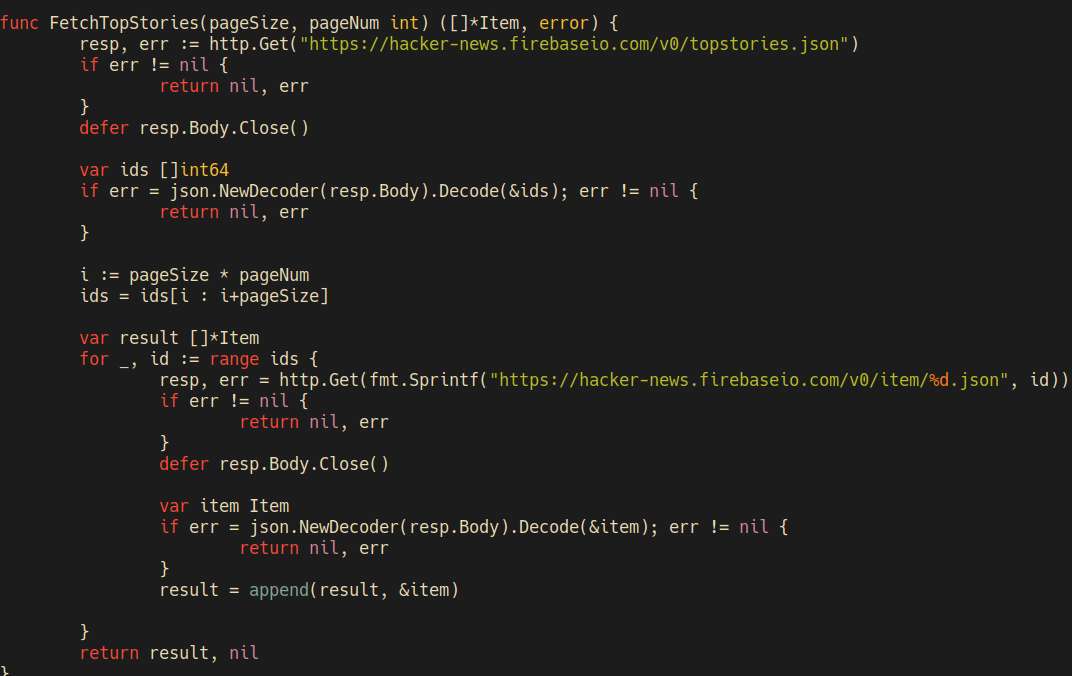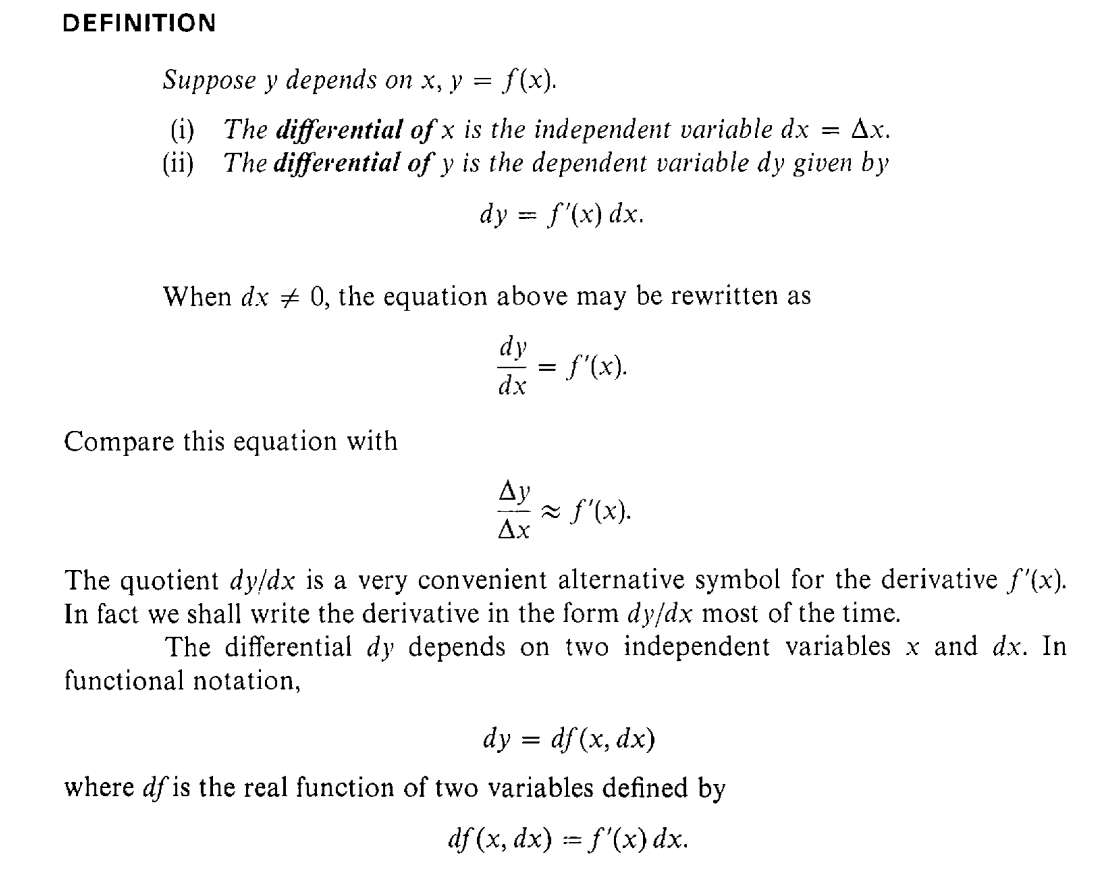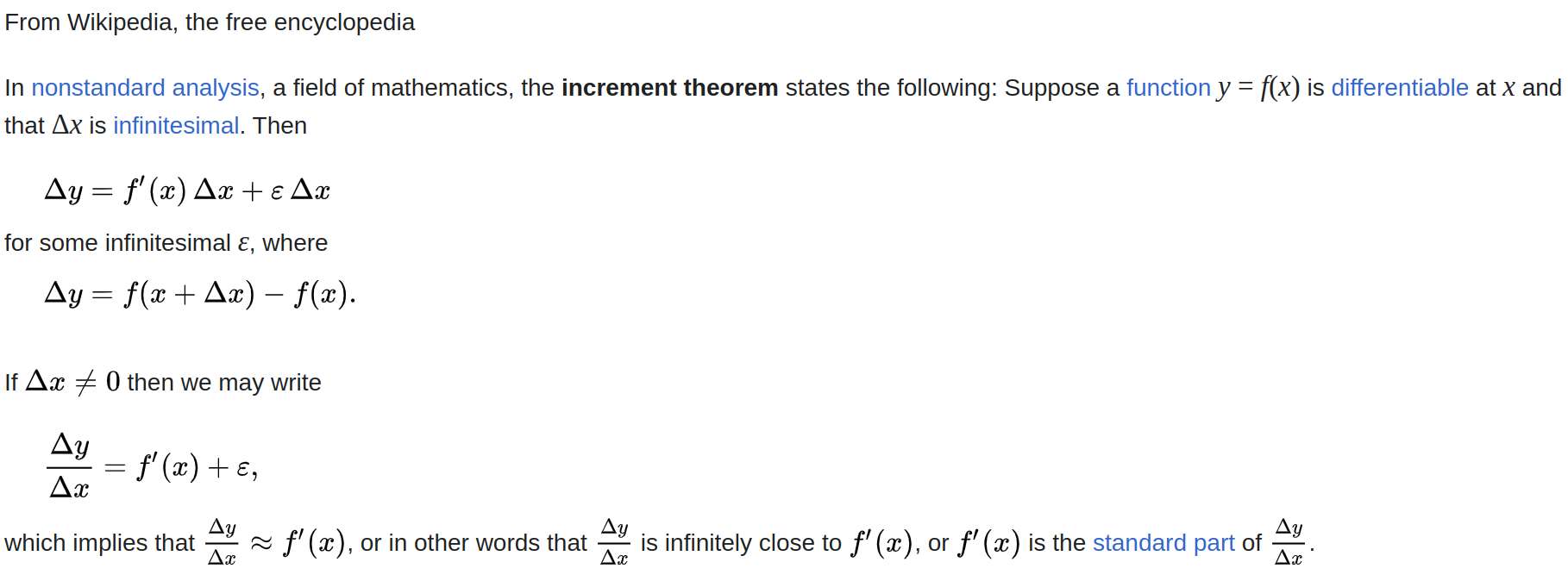I decided to use the official HN api while creating the frontend first. That way, it's easier to create a compatible backend later on.
Aha, I think I understand now. ∆y/∆x ≈ f'(x) does actually makes sense. I had an imprecise definition of derivative in my head. More precisely, the derivative f'(x) is
f'(x) = st(∆y/∆x)
f'(x) - (∆y/∆x)
= st(∆y/∆x) - ∆y/∆x
= ε
∆y/∆x ≈ f'(x)
∆y/∆x - f'(x) = ε // by definition of infinitesimal
∆y/∆x = f'(x) + ε
∆y = f'(x)∆x + ε∆xI did consider and downloaded other books about infinitesimal calculus, but I didn't find any mention of the increment theorem. It would probably be better if I skim through at least one of them, to further solidify my understanding. In the end the wikipedia page was enough to clear up my understanding. Or maybe, a weekend break, consisting of turning my brain off.
I'll spend more time getting used to the notation shown on page 56, and I'll need to have a very intuitive understanding of increment theorem, because it seems important to gloss over.












